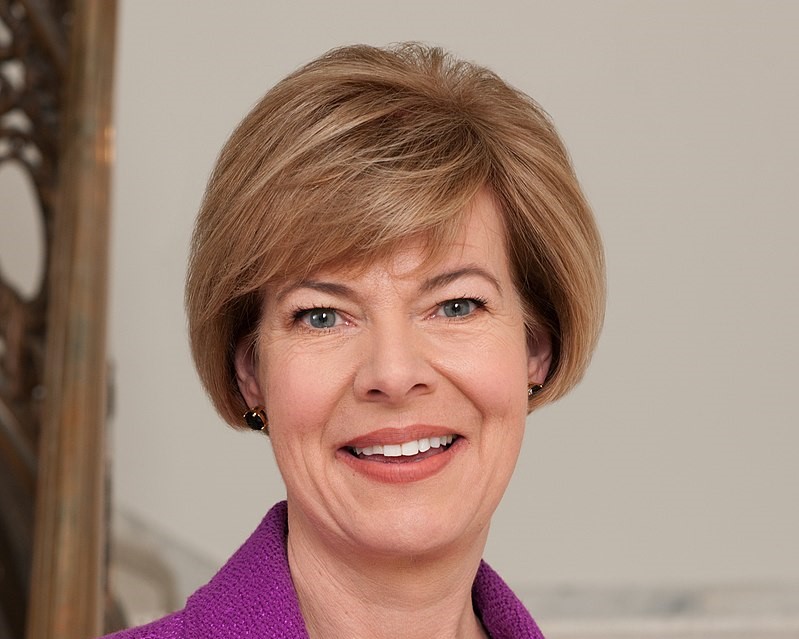Tours under the Mutual Educational and Cultural Exchange Act are common, expert says. Qatar has a poor record on human rights.

By Christina Lieffring, THE BADGER PROJECT
An estimated 1.4 million people visited Qatar for the 2022 FIFA World Cup last year, including U.S. Rep. Bryan Steil of Wisconsin. Unlike most World Cup visitors, Steil’s visit was paid for by the Qatari government.
In his 2022 financial disclosure report, filed in May, Steil noted that he traveled from Washington D.C. to Doha, Qatar from Nov. 19-23. The Qatari government paid for his lodging and food, according to the report.
The U.S. Men’s National Team played Wales on Nov. 21, drawing 1-1 after giving up a late goal on a penalty kick.
Qatar is a small but extremely wealthy country due to its fossil fuel deposits. It used the World Cup to introduce itself to the world and improve its image abroad, experts said.
The country faces sharp criticism for its deadly treatment of the migrant workers who built the World Cup stadiums and infrastructure and for its general poor record on human rights.
Steil, of Janesville, was able to accept the trip to Qatar due to the Mutual Educational and Cultural Exchange Act, or MECEA, which permits congressional representatives to travel with expenses covered by a foreign government without Ethics Committee review as long as it is reported in their annual financial disclosure report.
The Qatari Embassy in Washington did not respond to messages seeking comment from The Badger Project, but it told The Star Tribune that “this longstanding exchange program organized by Qatar was approved by the U.S. State Department in 2008, and permits participants to accept transportation, lodging and related expenses during their attendance.”
A bipartisan contingent of lawmakers, including Reps Ilhan Omar (D-MN), André Carson (D-IN), Claudia Tenney (R-NY), Darin LaHood (R-IL), and Eric Swalwell (D-CA) also made the trip.
Steil does not appear to have said anything publicly about the trip, in the press or on social media, nor did he respond to requests for comment from The Badger Project about the trip.
Swalwell and Omar posted about the trip on Twitter.
“As a congressman to one of the largest Muslim-American constituencies in the country, it’s with immense pride that we watch the first Arab-hosted #WorldCup,” Swalwell tweeted. “The play on the pitch has been phenomenal — but it’s been matched by Qatar’s showcasing of the region’s religion & culture.”
“It was such a delight to root for #TeamUSA at the World Cup in Qatar and today we are excited to root for them here at home,” Omar tweeted after she returned.
Swalwell reported a second trip to Qatar from Jan. 26-28, 2023, also reimbursed by the Qatari government. Jewish Insider reported that at least two other Congressional representatives — David Valadao (R-CA) and Lou Correa (D-CA) — also attended the World Cup and were reimbursed by Qatar, but did not report those trips on their disclosure documents.

Kedric Payne, senior director of ethics at Campaign Legal Center, a government watchdog nonprofit, says MECEA trips are “very common.”
“Public officials see the value of the MECEA trips because they are allowing the U.S. public officials to have better relationships internationally,” Payne said. The core reason for the act’s existence is not problematic, he added.
The Campaign Legal Center tracks public servants for conflicts of interest, Payne said. He saw none here.
“It doesn’t really matter the nature of U.S. relations with the country,” he continued “If there are any official acts or if there are any things that the public servant is doing that seem to be in conflict with the public interest and more in line with the interest of that other company that look problematic, then that raises the ethics concerns. Based on the known facts, right now, I’m not aware of any of those issues.”
UW-Madison political science professor emeritus David Canon is more skeptical of the overall MECEA program.
“In an ideal world, this type of government-funded travel for non-political purposes would not be allowed,” Canon says. “But within our current laws, it doesn’t strike me that this trip was especially egregious.”
The trip,” definitely doesn’t rise to the level of conflict of all of the recent disclosures concerning Justice [Clarence] Thomas.”
The Badger Project is a nonpartisan, citizen-supported journalism nonprofit in Wisconsin.
Categories: Investigations, Politics





